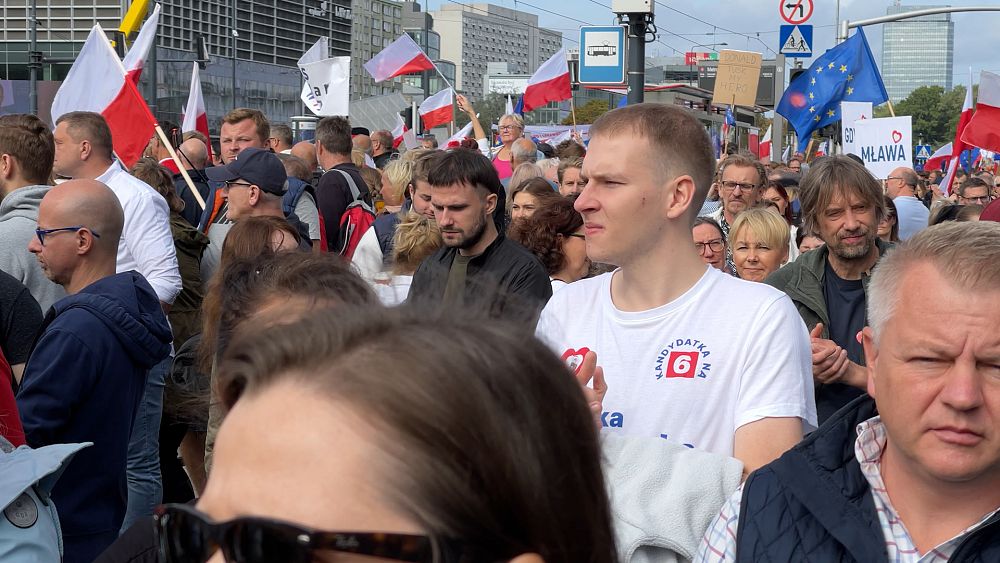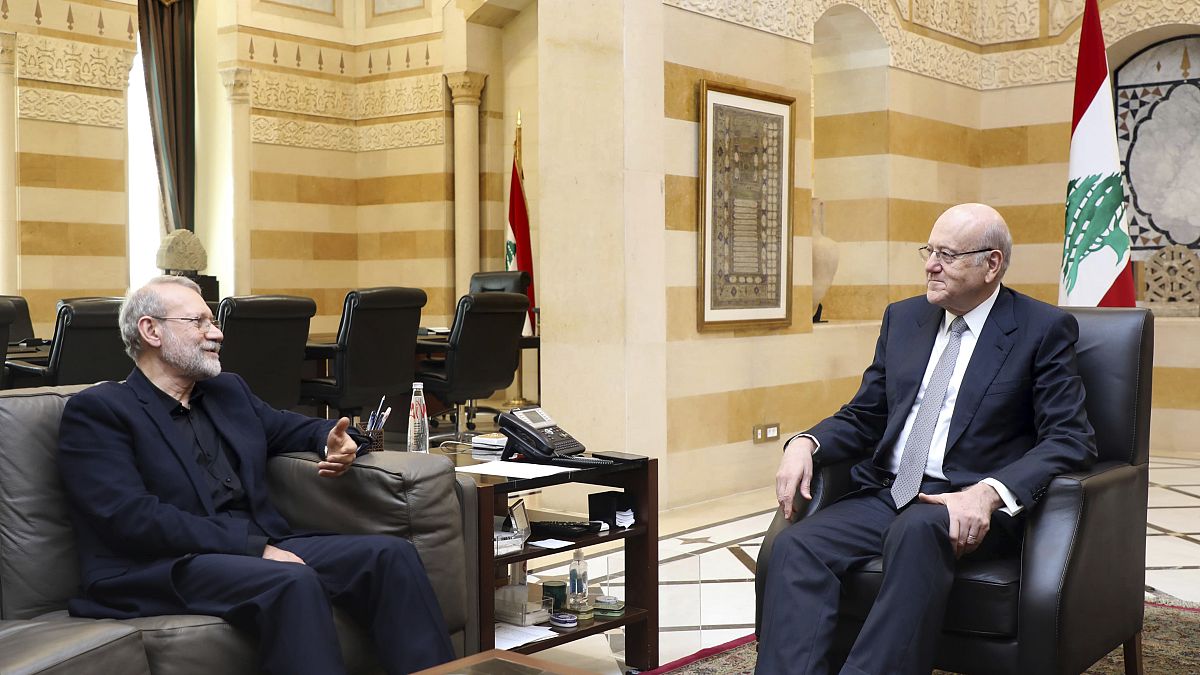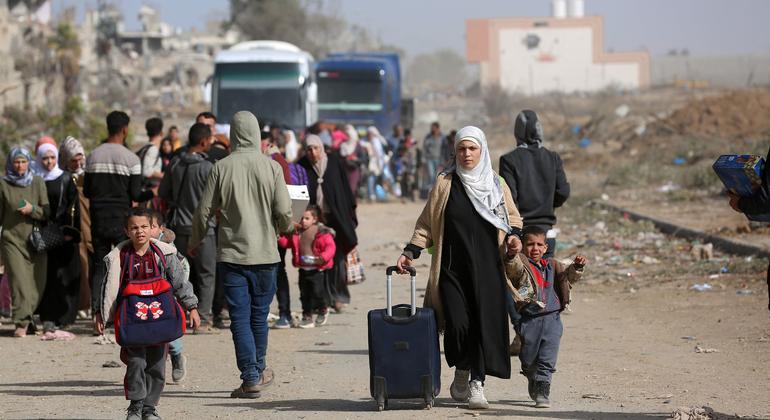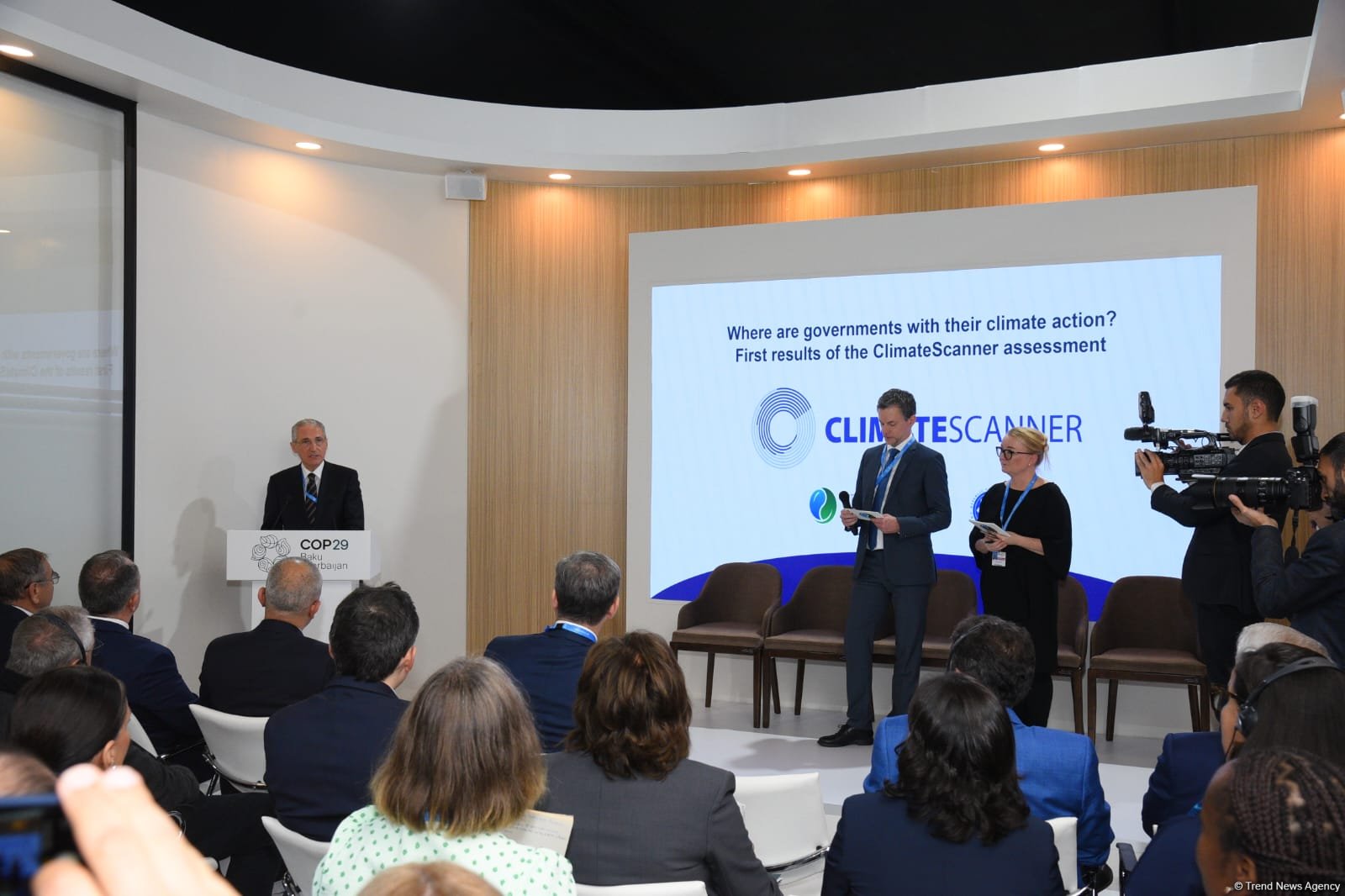Our reporter Hans von der Brelie travelled to Poland to meet young Poles who will vote for the first time in the parliamentary elections on 15 October. Their political views reflect the deep divisions in Polish society.
Who is going to govern Poland for the next four years? The country’s upcoming general elections are important not just for Poland – but also for the European Union. What are today’s challenges for the Polish society? What kind of fears or hopes are shared by young Poles?
Euronews sent MoJo reporter Hans von der Brelie to find out more about the state of mind of Poland’s first-time voters, against a backdrop of major political divisions in the country.
Jan: ‘I don’t like the old generation running our country’
The main opposition force, the liberal-conservative Civic Platform (PO), teamed up with a few smaller parties that share similar pro-European values, including Modern, Greens, and Polish Initiative.
By creating a common election platform, Civic Coalition (KO), PO opened to centre-left forces and is now considered a political catch-all movement.
The small town of Grójec in eastern Poland is located at the heart of the country’s apple-growing region. It was there that we met Jan, a 20-year-old supporter of the Civic Coalition.
Jan became interested in politics when Poland’s government introduced highly restrictive abortion laws, sparking huge demonstrations. He was 17 at the time. Three years later, Jan takes part in protests, hands out flyers and hopes for change.
“I don’t like the old generation running our country,” he told Euronews.
Jan also argues that more should be done to tackle the climate crisis. The country should “move away from fossil fuels, switching to 100 per cent renewables.”
On the subject of Europe, Jan wants Poland to reconcile with Brussels. “The European Union means progress,” he stated.
Aleksandra: ‘The political landscape in Poland lacks dignity’
The left-wing party, Lewica, gathers social-democratic and socialist ideas. It pushes for a strong social welfare state and equal opportunities for everyone.
Ahead of the election, Lewica refused to join with the Civic Coalition but could be open to join forces afterwards.
In Siedlce, a city in eastern Poland, we met Aleksandra, age 20. The Lewica supporter studies International Relations in Poland, Belgium and Spain.
“The current political landscape in Poland lacks dignity”, she told Euronews, blaming the ruling PiS party for flooding the country with smear campaigns against dissenting voices.
Aleksandra is unhappy about the recent reforms to the Polish justice system. She is horrified by the tough restrictions on abortion and proposes a change to asylum politics.
“The planet is burning, people are going to migrate. No human is illegal, so they should be given asylum and the help they need,” she said.
Robert: ‘Europe should learn from us’
Poland’s right-wing ruling party Peace and Law (PiS) has steered Poland into open conflict with the EU.
In recent years, the country’s media as well as the Polish justice system lost their independence.
Seeing basic European rule-of-law principles under threat, the EU blocked several billion euros of aid that had been earmarked for Poland.
In its election campaign, PiS criticised Europe for its plans to distribute migrants more equally across EU member states. The ruling party also hit out at Germany, accusing it of mingling into Polish affairs. PiS showered the country with promises of new spending on social and military causes.
In the tiny village of Baranów, we met Robert, a 23-year-old student of law and medicine. He helps out with the website of his PiS candidate.
“I want to create the best transport system possible in my province,” he told Euronews.
He is proud of the tough stance that his party has taken against migration. “Europe should learn from us,” he said.
On climate policy, Robert says that Poland should, “remember about coal because the Polish coal sphere is very influential in Polish politics.” Looking forward, Robert stressed the importance of building nuclear power plants.
When asked about his views on the European Union, Robert replied, “We want a powerful Europe […] but not as a federation. This is the wrong direction.”
Sebastian: ‘Abortion is bad’
Konfederacja is a melting pot of monarchists, hardcore EU haters, anti-Semites, and far-right radicals.
Driven by ultra-nationalistic anti-system groups and social-Darwinist ideas, Konfederacja repeatedly rebuffed speculation over potentially teaming up with the long-time ruling party Law and Justice.
But analysts as well as party members told Euronews, that Konfederacja could tolerate a PiS-run minority government.
In Warsaw, Euronews met first-time voter Sebastian. The muscleman trains martial arts and plays video games.
Sebastian likes hard rock music, his hamster and Konfederacja – and studies political science.
He first became engaged in politics in 2020.
“We were standing in front of churches, defending them against the left-wing pro-abortion demonstrators. Abortion is bad. We should not murder the most helpless and innocent people.”
Sebastian stresses the importance of Polish coal. “We should use it; and then: let’s go nuclear.”
“I think badly about the EU. They try to impose leftist ideologies on nation-states. As nationalists, we are absolutely against that.”
After the elections on 15 October, whether Poland is governed by the right or the centre-right, the country faces major challenges.
In order to obtain blocked EU funds, the independence of the judiciary must be restored. There are also problems with press freedom and voting rights. Polish society also needs social reconciliation to bridge deep political divides.





















Discussion about this post